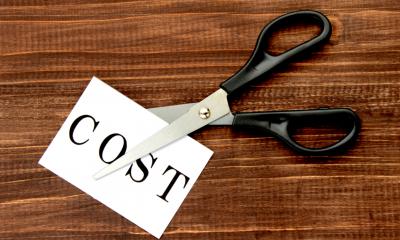
While you may not be able to influence how much customers spend with you, the one thing you can do is to control your costs
So lets get back to basics. There are two types of costs - variable and fixed.
Variable costs change in relation to the amount you sell or supply. Examples include stock, packaging, postage or delivery costs, etc.
Fixed costs remain constant regardless of sales. Examples include rent, electricity bills, accountancy fees, bank charges and so on.
So how can you control your costs? First, write down all of your costs and decide if they are fixed or variable. This is a good exercise because it enables you to establish exactly how much you are spending each day/week/month and what you are spending it on.
Once you have itemised all business costs, the next task is to reduce them. Yes, it can be done, and it would not be unrealistic to set a target of between 10-20%. Remember - anything saved immediately means more profit for your business.
Reducing variable costs
Lets start with variable costs, because these can be changed quickly, thereby increasing your profit almost immediately. Consider these questions:
- What costs can you reduce or eliminate?
- What costs can you re-negotiate, possibly put out to tender or shop around for a better deal. It's a buyers' market, so don't be afraid to ask for better value for money. Barter and negotiate hard.
- Can you get discounts by buying in bulk?
- If a supplier does not offer a discount - ask for one. You'll be surprised what you can achieve if you ask, so be ruthless and say you will go elsewhere if the price is not reduced.
Simple cost-saving measures include sending invoices and delivery notes by email instead of printing them or only providing them if requested. This saves on paper, printing and postage costs. You might be able to use less packaging or charge for non-essential items, such as carrier bags.
Reducing fixed costs
Cutting back on your fixed costs might take a little more time, but they can result in greater savings, so they should not be ignored.
The target should be to reduce all costs, so challenge everything you are spending. It might take a lot of effort, but your hard work can result in huge savings.
You might be able to make savings on your rent, for example. Ask your landlord for a rent reduction or a rent holiday. Shop around for cheaper utilities, so you can reduce your electricity and gas bills. Change banks regularly to take advantage of free banking periods. Shop around for savings on your accounting fees. By paying these monthly, some accountants will provide a fixed-fee service. Change your business telephone, internet or broadband packages to take advantage of special deals.
Remember:
- Be harsh
- Be ruthless
- Negotiate hard
- Challenge all so-called 'fixed' costs
- Don't be complacent
Keeping a tight reign on your costs will enable your business to stay lean and efficient. It can also help you to beat your competition.
Written by Elaine Clark of CheapAccounting.co.uk.



